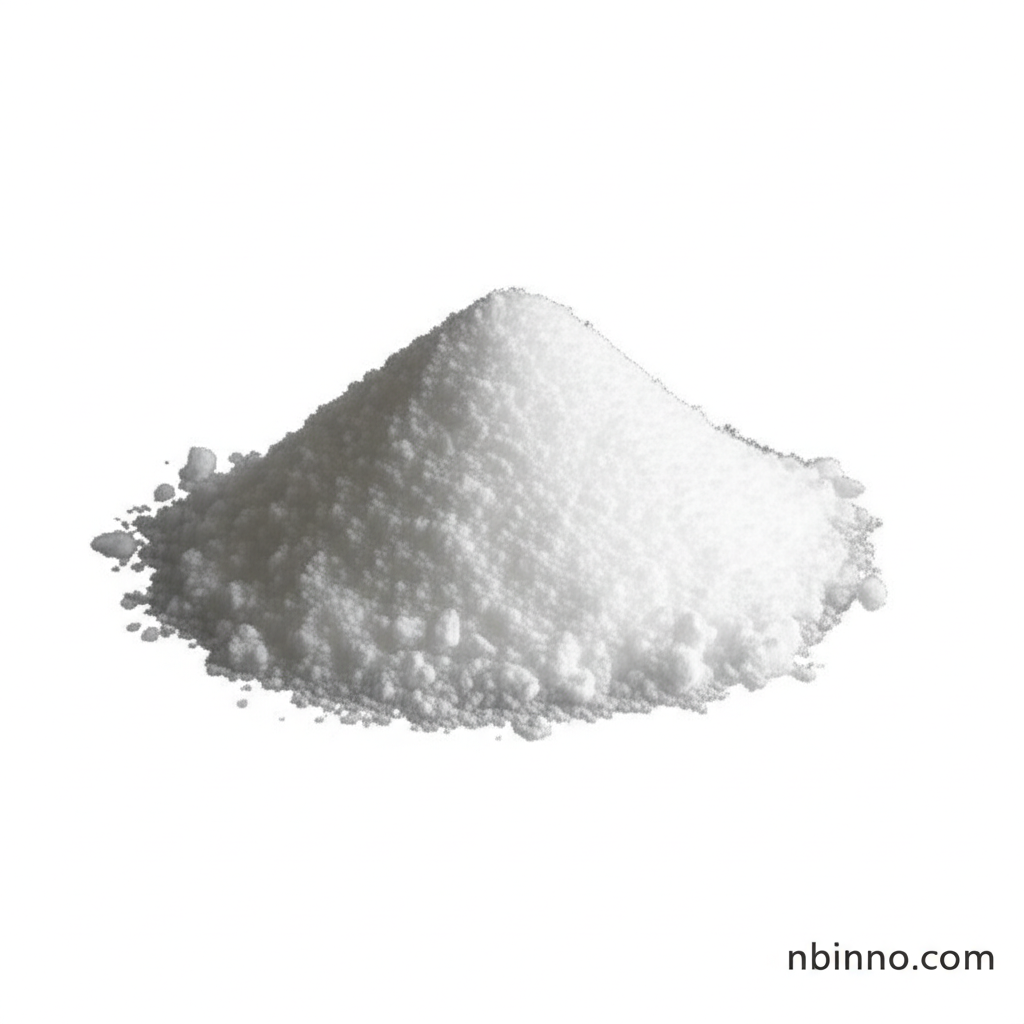Triphosgene: A Versatile and Safer Alternative to Phosgene in Organic Synthesis
Discover the benefits of Bis(trichloromethyl) carbonate as a safer, solid phosgene substitute for advanced chemical synthesis.
Get a Quote & SampleProduct Core Value

Bis(trichloromethyl) carbonate
Bis(trichloromethyl) carbonate, commonly known as Triphosgene, stands out as a crucial chemical intermediate. It is a solid, stable, and significantly safer alternative to the hazardous gaseous phosgene, making it highly sought after in various chemical industries. Its primary role as an efficient carbonylating agent facilitates a wide range of synthetic transformations.
- Explore the uses of Triphosgene in organic synthesis for creating essential compounds.
- Understand the importance of using a safer phosgene substitute like Triphosgene in laboratory and industrial settings.
- Learn about the chemical properties of Bis(trichloromethyl) carbonate and its applications as a pharmaceutical intermediate.
- Discover how Triphosgene enhances efficiency and safety in chemical reactions.
Key Advantages
Enhanced Safety Profile
As a solid material, Bis(trichloromethyl) carbonate dramatically reduces the risks associated with handling and transporting the highly toxic phosgene gas, improving overall workplace safety when using Triphosgene.
Synthetic Versatility
This compound acts as an efficient carbonylating agent, enabling crucial reactions like chloroformylation and isocyanate formation, vital for producing plastics and pharmaceuticals, highlighting the broad Triphosgene uses.
Ease of Handling and Storage
The solid nature of Triphosgene simplifies its storage, transportation, and dosage in reactions, offering practical benefits over gaseous alternatives in various Triphosgene synthesis pathways.
Key Applications
Pharmaceutical Intermediates
Triphosgene serves as a critical building block in the synthesis of various pharmaceutical intermediates, contributing to the development of life-saving medications and understanding its applications as a pharmaceutical intermediate is key.
Polymer Manufacturing
Its ability to facilitate the formation of polycarbonates makes Bis(trichloromethyl) carbonate an important reagent in the plastics industry for creating durable and versatile polymer materials.
Agrochemicals
Triphosgene is utilized in the production of herbicides and pesticides, playing a role in agricultural advancements and crop protection strategies.
Fine Chemical Synthesis
As a versatile reagent in organic synthesis, it is instrumental in the creation of a wide array of fine chemicals, underscoring its importance as a Triphosgene chemical property.
